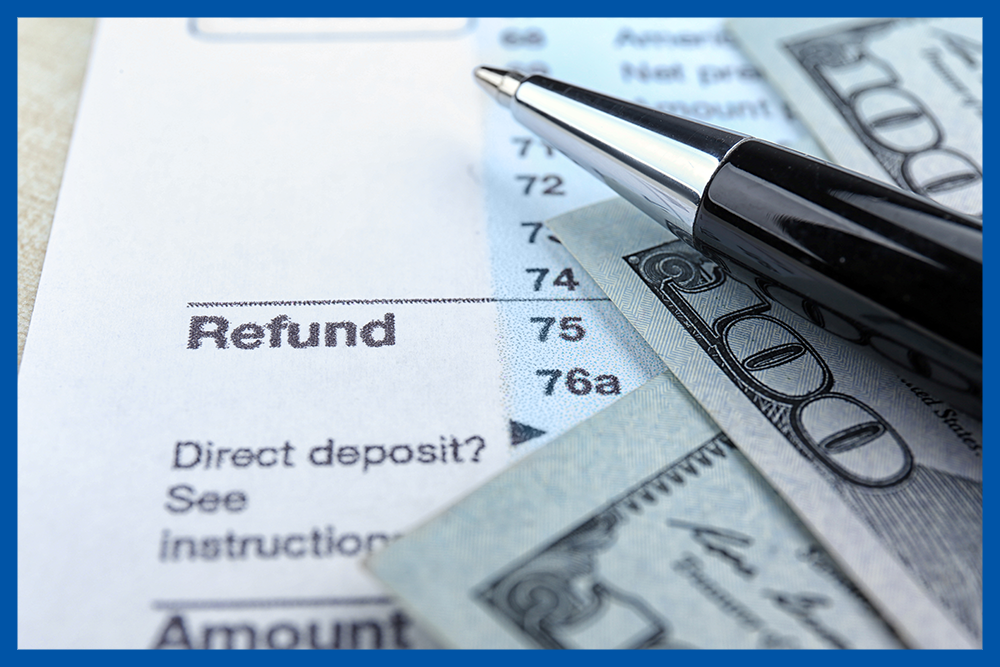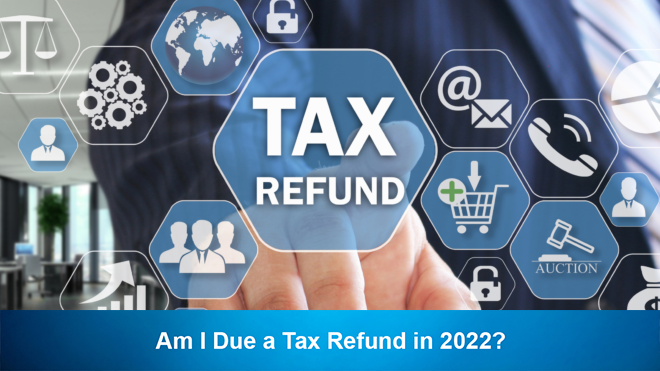TAX SEASON IS UNDERWAY! The IRS announced that the 2022 tax filing season opened this Monday (January 24th, 2022). It’s the third coronavirus pandemic tax filing season, and again, that’s expected to cause complexities in filing. Here’s what you need to know.
The pandemic created problems for those filing last year. The Internal Revenue Service, in turn, has made advancements and improvements so their systems run properly in preparation for tax season.
Updated programming helps ensure that eligible people can claim the proper amount of tax credits such as the child tax credit, as well as compare their 2021 credits and claim any remaining stimulus money when they file their 2021 tax return.
Here’s what to expect for the filing year.


The deadline to file your 2021 taxes is April 18, 2022, the sooner you are able to do it the sooner you might receive a tax refund. Last year’s average tax refund was more than $2,800. The IRS is predicting that the majority of qualifying taxpayers will receive a tax refund within 21 days of it being filed electronically. Since the pandemic created problems for those who filed last year, the IRS is recommending people file electronically with direct deposit instead of a paper tax return.
The IRS is also urging extra attention to those who received an Economic Impact Payment or an advance Child Tax Credit last year. People should make sure they report the correct amount on their tax return to avoid delays (more on this below).

It is not too late to receive benefits brought by 2020’s Coronavirus Aid, Relief, and CARES Act. From 2018-2020 legislation suspended Section 461(l) which is the limitation on excess business losses. This prohibits business loss deductions in excess of $500,000 for married taxpayers filing joint filers or $250,000 for single filers. Legislation also temporarily restored the ability for businesses to carry back net operating losses incurred from 2018-2020 tax years.
What’s more, the CARES Act expanded Section 163(j) business interest deduction percentage to 50% for the 2019-2020 tax years for most taxpayers. This is great news for business owners. If your business didn’t apply the enhanced percentages to previously filed tax returns, you can amend those past tax returns to claim these benefits.
A proposal in the draft BBBA legislation would affect partnerships and S corporations. By moving the calculation of the Section 163(j) limitation from the entity level to the individual level, it would impact the amount of business interest expense, but it’s important to note that this expense is ultimately deductible.


There are several important dates taxpayers should keep in mind for this year’s filing season:
- January 14: IRS Free File opened. Taxpayers began filing returns through IRS Free File partners; tax returns will be transmitted to the IRS starting January 24. Tax software companies also are accepting tax filings in advance.
- January 18: Was the due date for tax year 2021 fourth quarter estimated tax payment.
- January 24: IRS began 2022 tax season. Individual 2021 tax returns began being accepted and processing has begun.
- January 28: Earned Income Tax Credit Awareness Day to raise awareness of valuable tax credits available to many people.
- April 18: Due date to file 2021 tax return or request extension and pay tax owed due to Emancipation Day holiday in Washington, D.C., even for those who live outside the area.
- April 19: Due date to file 2021 tax return or request extension and pay tax owed for those who live in MA or ME due to Patriots’ Day holiday.
- October 17: Due date to file for those requesting an extension on their 2021 tax returns.


Look out for the typical W-2 and 1099 forms you’ll need on hand for filing. But also look out for two new letters the IRS is sending most taxpayers, one about 2021 advance child tax credit payments and the other about the 2021 stimulus payment.
As mentioned earlier, the 2021 Economic Impact Payment aka stimulus payment true up works slightly differently. If you got the full amount for your stimulus payment, you won’t include any information about it when you file your 2021 tax return. The IRS says it will start issuing Letter 6475, Your Third Economic Impact Payment, to individuals who received a third payment and/or plus-up payments in 2021 in late January.
The IRS expects more than 160 million 2021 tax returns will be filed. Most refunds will come within 21 days for taxpayers who choose direct deposit. By law, the IRS cannot issue a refund involving the Earned Income Tax Credit or the Additional Child Tax Credit before mid-February, although you can still file your return as of the recent January 24th date.

This year, taxpayers could see a repeat of last year’s snarls in processing, when about 30 million taxpayers had their returns — and refunds — held up by the IRS.
Treasury Department officials warned on Monday that this year’s tax season will be a challenge once the IRS started processing returns. That’s largely due to the IRS’ sizable backlog of returns from 2021. As of December 23, the agency had 6 million unprocessed individual returns — a significant reduction from a backlog of 30 million in May, but far higher than the 1 million unprocessed returns that is more typical around the start of tax season.
That may make taxpayers nervous about delays in 2022, but most Americans should get their refunds within 21 days of filing, the IRS said earlier this month.
Although some people may simply like filing paper returns — and others may have no choice — the IRS says that taxpayers who file electronically are more likely to have their returns processed quickly.

Since taxpayers can now start filing their taxes, it’s a good idea to get a head start gathering and organizing your 2021 tax records, including last year’s tax return, your W-2s and 1099s, and receipts.
IRS backlogs and accounting for child-tax-credit payments are among the difficulties awaiting taxpayers ahead of the mid-April deadline. The timing of your return could depend on if you file electronically, choose direct deposit, and, assuming there are no issues with your return, you should get your refund within 21 days.
From tax refunds to retirement income planning, the financial advisors at CKS Summit Group have tips for getting the most out of your 2022 tax refund. Furthermore, we can help you build and implement your investment portfolio reallocation strategy, assess your current holdings from a holistic planning perspective, and provide tax strategy support every step of the way.
Our team of experienced advisors are equipped with unique tax planning tools for each of our clients to get maximum results for your tax planning and refund needs. For questions about how potential tax changes affect your current strategy, contact us today to set up your complimentary strategy session!



